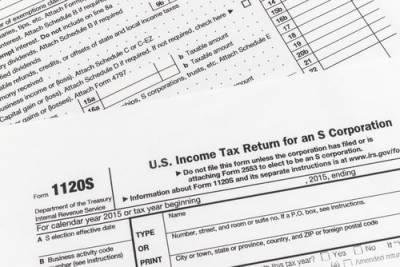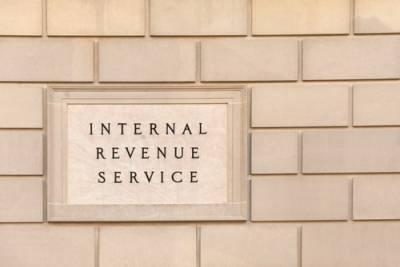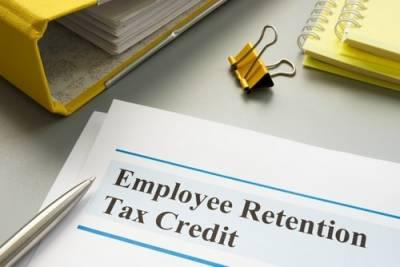Recent Blog Posts
New IRS Policy: No Unannounced Visits to Taxpayers
 For most taxpayers, a visit, call, or letter from the IRS can be very concerning. If a taxpayer has failed to pay taxes as required, has not reported information correctly when filing tax returns and other forms, or has otherwise failed to comply with tax laws, they can face significant penalties. When a person is contacted by the IRS, this could be a sign that they will face a tax audit, and they may need to address a variety of complex financial issues as they determine how to address issues related to tax compliance. However, the IRS recently announced a policy change that may limit certain forms of contact between IRS agents and taxpayers. Namely, the IRS will no longer make unannounced visits to taxpayers in most situations.
For most taxpayers, a visit, call, or letter from the IRS can be very concerning. If a taxpayer has failed to pay taxes as required, has not reported information correctly when filing tax returns and other forms, or has otherwise failed to comply with tax laws, they can face significant penalties. When a person is contacted by the IRS, this could be a sign that they will face a tax audit, and they may need to address a variety of complex financial issues as they determine how to address issues related to tax compliance. However, the IRS recently announced a policy change that may limit certain forms of contact between IRS agents and taxpayers. Namely, the IRS will no longer make unannounced visits to taxpayers in most situations.
IRS Policy Addresses Safety Concerns and Other Issues
In the past, IRS agents would occasionally visit homes or businesses without contacting taxpayers in advance. During these visits, they would address concerns about unpaid taxes or failure to file tax returns. However, in recent years, IRS agents have faced safety concerns when making these unannounced visits. Law enforcement officials have also noted the increased prevalence of tax scams in which people pose as IRS agents. Because of these concerns, the IRS has put an end to nearly all unannounced visits, effective immediately.
How Can Changes in Ownership Affect California Property Taxes for Commercial Real Estate?
 In California, property taxes can be a significant concern for commercial real estate owners. Depending on the assessed value of a property, these taxes can be very high, and the requirement to pay these taxes may cause financial difficulties for property owners. Due to current trends in California real estate, the value of many properties has plummeted, and some property owners may struggle to meet their obligations. However, this may present an opportunity to reassess the value of a property through changes in ownership. By understanding when the transfer of ownership of a property may affect property taxes, commercial real estate owners may be able to take steps to reduce their tax burden.
In California, property taxes can be a significant concern for commercial real estate owners. Depending on the assessed value of a property, these taxes can be very high, and the requirement to pay these taxes may cause financial difficulties for property owners. Due to current trends in California real estate, the value of many properties has plummeted, and some property owners may struggle to meet their obligations. However, this may present an opportunity to reassess the value of a property through changes in ownership. By understanding when the transfer of ownership of a property may affect property taxes, commercial real estate owners may be able to take steps to reduce their tax burden.
Proposition 13 and Property Tax Assessments
Property tax assessments in California are governed by Proposition 13, a law that was passed in 1978. This law set the maximum property tax rate at 1%, and it also limited the amount by which the assessed value of a property can increase from year to year. A property will have a “base year value” that is assessed based on when the property was originally purchased, when construction was last completed, or when the property changed ownership. The assessed value of a property can only increase by 2% per year, regardless of the property’s actual fair market value.
Will Income Taxes Apply When Employees Receive Cryptocurrency as Income?
 The popularity of cryptocurrencies such as Bitcoin and Ethereum has continued to grow in recent years, and some companies are now offering these virtual currencies as a form of compensation to their employees. Freelancers and independent contractors may also receive cryptocurrency as payment for their services. This raises an important question: are people who receive cryptocurrency as wages or payments for services required to pay income taxes? By understanding the tax laws related to virtual currency, those who receive income in this form can make sure they are paying taxes as required and avoiding potential penalties.
The popularity of cryptocurrencies such as Bitcoin and Ethereum has continued to grow in recent years, and some companies are now offering these virtual currencies as a form of compensation to their employees. Freelancers and independent contractors may also receive cryptocurrency as payment for their services. This raises an important question: are people who receive cryptocurrency as wages or payments for services required to pay income taxes? By understanding the tax laws related to virtual currency, those who receive income in this form can make sure they are paying taxes as required and avoiding potential penalties.
The IRS and Cryptocurrency
In 2014, the Internal Revenue Service (IRS) issued a notice stating that virtual currency will be treated as property for federal tax purposes. This means that the general tax principles applicable to property transactions will also apply to transactions involving cryptocurrency. When property is received as payment for performing services, it is considered to be taxable income. This income must be reported to the IRS, and it is subject to federal income tax withholding. The fair market value of the cryptocurrency on the date of receipt by the employee is used to determine the amount of income that needs to be reported. When independent contractors receive cryptocurrency as payments, they will be required to pay self-employment taxes based on the fair market value of the virtual currency when it was received.
When Will Corporations Be Required to Pay the Corporate Alternative Minimum Tax?
 The tax laws in the United States change regularly, and taxpayers need to be aware of new requirements that may apply to them when filing tax forms, paying taxes to the IRS, or addressing other tax-related issues. One recent change to the tax laws that may affect certain companies involves the Corporate Alternative Minimum Tax (CAMT), which was put in place by the Inflation Reduction Act of 2022. Recently, the IRS issued guidance on the requirements for this tax, and it is also allowing relief from penalties that may apply for companies that have failed to make estimated quarterly tax payments in 2023.
The tax laws in the United States change regularly, and taxpayers need to be aware of new requirements that may apply to them when filing tax forms, paying taxes to the IRS, or addressing other tax-related issues. One recent change to the tax laws that may affect certain companies involves the Corporate Alternative Minimum Tax (CAMT), which was put in place by the Inflation Reduction Act of 2022. Recently, the IRS issued guidance on the requirements for this tax, and it is also allowing relief from penalties that may apply for companies that have failed to make estimated quarterly tax payments in 2023.
What Is the Corporate Alternative Minimum Tax?
The CAMT is a new tax that must be paid by certain corporations, and this requirement went into effect on January 1, 2023. Corporations that earned an average of $1 billion in annual profits over a 3-year period will be required to pay the CAMT. This tax will also be required for U.S. corporations that are subsidiaries of foreign companies, so long as a U.S. company has at least $100 million in profits and the aggregated foreign group has at least $1 billion in profits. The CAMT will not be required for S-corporations, real estate investment trusts (REITs), or regulated investment companies (RICs). These pass-through entities are not required to pay corporate taxes, and the personal income of owners or investors is taxed instead.
Understanding the Differences in Tax Deductions for Hobbies and Businesses
 Business owners often rely on tax deductions to address their expenses. Deductions are available for multiple types of business expenses, and they can significantly lower a person's tax burden. However, businesses are expected to be for-profit ventures, and if a person's income-generating activities regularly result in more losses than gains, they may be classified as hobbies. This can limit the types of deductions that may be available. By understanding the IRS's hobby loss rules, taxpayers can make sure they are able to claim deductions when necessary.
Business owners often rely on tax deductions to address their expenses. Deductions are available for multiple types of business expenses, and they can significantly lower a person's tax burden. However, businesses are expected to be for-profit ventures, and if a person's income-generating activities regularly result in more losses than gains, they may be classified as hobbies. This can limit the types of deductions that may be available. By understanding the IRS's hobby loss rules, taxpayers can make sure they are able to claim deductions when necessary.
When Are Activities Classified as Hobbies Rather Than Businesses?
In general, a taxpayer's activities may be classified as a hobby if they do not earn a profit during 3 of the 5 most recent years. That is, the income earned from an activity must exceed the allowable deductions for that activity in 3 out of 5 years. The applicable time periods are different for activities involving breeding, racing, training, or showing horses. In these cases, a person will only be required to earn a profit in 2 of the last 7 years.
Reasonable Cause Threshold in Tax Laws May Be Unreasonable
 There are numerous different situations where taxpayers may face tax penalties. IRS audits may determine that a taxpayer failed to file tax returns or other required forms or failed to pay taxes as required. In some cases, relief may be available that will allow taxpayers to avoid or reduce penalties, and in some cases, a taxpayer may be able to show that they were unable to comply with their requirements due to "reasonable cause." However, a recent court ruling shows that the standards used by the government to assess reasonable cause can be anything but reasonable.
There are numerous different situations where taxpayers may face tax penalties. IRS audits may determine that a taxpayer failed to file tax returns or other required forms or failed to pay taxes as required. In some cases, relief may be available that will allow taxpayers to avoid or reduce penalties, and in some cases, a taxpayer may be able to show that they were unable to comply with their requirements due to "reasonable cause." However, a recent court ruling shows that the standards used by the government to assess reasonable cause can be anything but reasonable.
Operating Engineers Local Union No. 3 v. United States
Operating Engineers Local Union No. 3 is the largest construction union in the United States, and prior to 2018, it had a record of over 100 years of full compliance with federal tax laws. However, in the third and fourth quarters of 2018 and the first quarter of 2019, the union failed to deposit payroll taxes as required. The IRS assessed a penalty of over $580,000, and the union paid this penalty. The union later sought a refund of the penalty, claiming that it had reasonable cause for its failure to meet its obligations.
What Tax Issues Need to Be Addressed When Closing a Business?
 Closing a business can be a difficult decision. Despite a business owner's best efforts, a company may be unsuccessful, and it may be necessary to terminate operations and dissolve the business entity. However, wrapping up business operations can be a daunting task that will require careful planning and execution. Tax issues can be some of the most crucial aspects of closing a business, and business owners will need to understand the tax implications that may affect them in these situations.
Closing a business can be a difficult decision. Despite a business owner's best efforts, a company may be unsuccessful, and it may be necessary to terminate operations and dissolve the business entity. However, wrapping up business operations can be a daunting task that will require careful planning and execution. Tax issues can be some of the most crucial aspects of closing a business, and business owners will need to understand the tax implications that may affect them in these situations.
Filing Final Tax Returns and Other Forms
Business owners or partners will need to make sure all delinquent tax returns for a business have been filed, and they will also need to file a tax return for the year in which the business ceased operations. Any taxes that are owed must be paid. Depending on the way the business was structured, different types of forms may need to be filed with the IRS. In addition to income tax return forms, a business owner may need to report sales of business property, and asset acquisition statements may be required if the business was sold to a new owner. For corporations, a Corporate Dissolution or Liquidation form must be filed with the IRS. When filing a state tax return with the California Franchise Tax Board, it must be marked as a final return, and the business must cease all business operations before the end of that tax year.
When Can Micro-Captive Transactions Lead to Tax Penalties?
 The IRS regularly reviews the documentation filed by individual taxpayers, businesses, and organizations, and it has identified numerous ways that taxpayers may engage in tax avoidance or tax evasion. The "abusive tax schemes" that are recognized by the IRS may lead to tax audits, and a taxpayer that has failed to pay taxes as required or meet other requirements for reporting information to the IRS may be subject to penalties. One abusive tax scheme recently highlighted by the IRS involves micro-captive transactions, and companies that engage in these types of transactions will need to be aware of what requirements may apply to them and how they can avoid potential penalties.
The IRS regularly reviews the documentation filed by individual taxpayers, businesses, and organizations, and it has identified numerous ways that taxpayers may engage in tax avoidance or tax evasion. The "abusive tax schemes" that are recognized by the IRS may lead to tax audits, and a taxpayer that has failed to pay taxes as required or meet other requirements for reporting information to the IRS may be subject to penalties. One abusive tax scheme recently highlighted by the IRS involves micro-captive transactions, and companies that engage in these types of transactions will need to be aware of what requirements may apply to them and how they can avoid potential penalties.
What Are Micro-Captive Transactions?
In some cases, businesses may establish "captive" insurance companies that are owned and operated by the parties who are insured by these companies. This can be an effective way to ensure that a company has appropriate insurance coverage to address unique issues, and it can provide other benefits as well. However, the IRS has identified certain types of captive insurance companies as "micro-captives" that may be used to reduce the amount of taxes a business may be required to pay.
Can Employers Claim an Employee Retention Credit on Payroll Taxes?
 There are numerous different types of tax credits and deductions that may be available to small business owners, and these can be essential methods of minimizing a business's tax burden and ensuring that a company can continue operating successfully. Business owners should be aware of the types of employment tax credits they may be able to use, as well as the potential penalties they could face if they do not claim these credits correctly. One concern that has risen recently is related to the Employee Retention Credit (ERC), which has been highlighted by the IRS as a potential avenue for tax scams.
There are numerous different types of tax credits and deductions that may be available to small business owners, and these can be essential methods of minimizing a business's tax burden and ensuring that a company can continue operating successfully. Business owners should be aware of the types of employment tax credits they may be able to use, as well as the potential penalties they could face if they do not claim these credits correctly. One concern that has risen recently is related to the Employee Retention Credit (ERC), which has been highlighted by the IRS as a potential avenue for tax scams.
What Is the Employee Retention Credit?
During the COVID-19 pandemic, a variety of measures was put in place to provide assistance for businesses that were forced to shut down or experienced other issues that led to losses of revenue. One of these was the Employee Retention Credit, which was a payroll tax credit that was available in the tax years of 2020 and 2021. It allowed employers to receive a credit for a percentage of qualified wages paid to employees, with a maximum credit of $5,000 per employee in 2020 and $7,000 per employee per quarter in 2021.
How Can Small Businesses Take Advantage of Clean Energy Tax Credits?
 As part of the ongoing efforts to address global climate change, the U.S. government has taken steps to promote the use of clean energy in a number of ways. This includes offering tax credits and deductions for small businesses that take steps to cut energy costs and reduce reliance on fossil fuels. By investing in energy efficiency, small business owners may be able to realize significant savings by reducing their expenses and lowering their tax bills.
As part of the ongoing efforts to address global climate change, the U.S. government has taken steps to promote the use of clean energy in a number of ways. This includes offering tax credits and deductions for small businesses that take steps to cut energy costs and reduce reliance on fossil fuels. By investing in energy efficiency, small business owners may be able to realize significant savings by reducing their expenses and lowering their tax bills.
Types of Clean Energy Credits and Deductions
There are several options that may be available for small businesses that make the shift toward clean energy, including:
-
Solar energy tax credits - Businesses that purchase new solar energy systems have two options for receiving tax credits. The investment tax credit (ITC) will reduce a business's federal tax liability in the year in which a new solar power system is installed, while the production tax credit (PTC) will provide ongoing credits based on the electricity generated by a solar power system within the first 10 years of operation. The ITC provides a credit of 30 percent of the amount spent on systems such as solar panels, inverters, transformers, circuit breaks, and energy storage devices, and it may be the preferred option for smaller-scale solar power projects. The PTC provides a tax credit of 2.75 cents per kilowatt-hour of electricity generated in a tax year, and it may provide more tax savings in situations involving large-scale projects that will generate a significant amount of electricity over several years. Both the ITC and PTC will be available for systems that began operating in 2022 or later, as long as construction begins prior to 2033.









